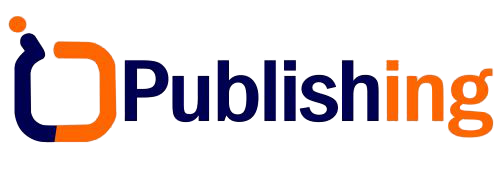Jaringan Pemimpin Perempuan pada Perusahaan Formal: Perspektif Lingkungan Akademisi
DOI:
https://doi.org/10.47134/jobm.v1i2.9Keywords:
Pemimpin perempuan, Gaya kepemimpinan, Keseimbangan kehidupan kerja, Lingkungan akademisiAbstract
Kesenjangan gender dalam gaya kepemimpinan diakui di seluruh dunia tetapi masih belum jelas apakah perempuan di dunia akademis mengadopsi praktik kepemimpinan yang berbeda dari laki-laki. Stereotip gender secara keliru menggambarkan perempuan sebagai kurang berkualitas yang terkait dengan kepemimpinan yang efektif, melanggengkan kesalahpahaman bahwa perempuan gagal mencapai laki-laki dalam peran tingkat atas. Studi ini mengeksplorasi bagaimana gaya kepemimpinan dan keseimbangan kehidupan kerja berbeda antar gender di dunia akademis menggunakan model probit Biner dengan efek interaksi. Sensus telah dilakukan dan data telah dikumpulkan dari 103 responden di perguruan tinggi Jawa Timur, Indonesia. Temuan penelitian menunjukkan bahwa yang terakhir berusaha untuk mengantongi lebih sedikit peluang konsultasi dan menarik jumlah dana yang lebih rendah dari sektor korporasi meskipun memiliki gaya kepemimpinan yang unggul dibandingkan dengan laki-laki karena keseimbangan kehidupan kerja yang buruk karena peran beban ganda yang diharapkan mereka lakukan mengikuti stereotip masyarakat. Gaya kepemimpinan yang efektif/unggul harus memberikan kesempatan untuk benchmarking dengan klien perusahaan baik di dalam maupun di luar akademisi.
References
Abbate, T., Cesaroni, F., & Presenza, A. (2021). Knowledge transfer from universities to low- and medium-technology industries: evidence from Italian winemakers. The Journal of Technology Transfer, 46(4), 989–1016. https://doi.org/10.1007/s10961-020-09800-x
Alamsyah, V. U. (2021). The Evidence-Based Leadership on Higher Education: A Theorical Review. International Journal of Social and Management Studies, 2(2), 105–113. https://doi.org/10.5555/ijosmas.v2i2.21
Bauer, N. M., & Cargile, I. A. M. (2023). Women Get the Job Done: Differences in Constituent Communication from Female and Male Lawmakers. Politics & Gender, 1–24. https://doi.org/10.1017/S1743923X23000259
Chaudhary, G., & Dr. Ashok Kumar, D. A. (2022). Study of Work-Life Balance of Women Journalists in Print Media Industry. Technoarete Transactions on Advances in Social Sciences and Humanities, 1(1), 1–4. https://doi.org/10.36647/TTASSH/01.02.A001
Compagnucci, L., & Spigarelli, F. (2020). The Third Mission of the university: A systematic literature review on potentials and constraints. Technological Forecasting and Social Change, 161, 120284. https://doi.org/10.1016/j.techfore.2020.120284
Corsino, M., & Torrisi, S. (2023). University engagement in open innovation and intellectual property: evidence from university–industry collaborations. Journal of Industrial and Business Economics, 50(4), 781–813. https://doi.org/10.1007/s40812-023-00280-2
Deng, C., Gulseren, D., Isola, C., Grocutt, K., & Turner, N. (2023). Transformational leadership effectiveness: an evidence-based primer. Human Resource Development International, 26(5), 627–641. https://doi.org/10.1080/13678868.2022.2135938
Dev, P., & Sowmya, N. D. (2022). An Empirical Analysis of Work Life Balance: A study on women employees in Banking Sector. YMER Digital, 21(07), 691–703. https://doi.org/10.37896/YMER21.07/55
Filippi, E., Bannò, M., & Trento, S. (2023). Automation technologies and the risk of substitution of women: Can gender equality in the institutional context reduce the risk? Technological Forecasting and Social Change, 191, 122528. https://doi.org/10.1016/j.techfore.2023.122528
Ganapathi, P., Aithal, P. S., & Kanchana, D. (2023). Impact of Work-Life Balance and Stress Management on Job Satisfaction among the Working Women in Higher Educational Institutions in Namakkal District. International Journal of Case Studies in Business, IT, and Education, 281–293. https://doi.org/10.47992/IJCSBE.2581.6942.0320
Greven, A., Beule, T., Fischer-Kreer, D., & Brettel, M. (2024). Perceiving an entrepreneurial climate at universities: An inquiry into how academic entrepreneurs observe, use, and benefit from support mechanisms. Research Policy, 53(2), 104929. https://doi.org/10.1016/j.respol.2023.104929
Heidelmann, M.-A., Weber, S. M., & Klös, T. (2023). Collective Leadership Toward Sustainability Innovations: An Organizational Education Professionalization Approach. In World Sustainability Series (pp. 603–624). Springer, Cham. https://doi.org/10.1007/978-3-031-22856-8_32
Hirschi, A. (2020). Whole‐Life Career Management: A Counseling Intervention Framework. The Career Development Quarterly, 68(1), 2–17. https://doi.org/10.1002/cdq.12209
Iman, A., Nazarov, Z., & Obydenkova, A. (2022). Female Leadership, Democratization, and Firm Innovation: Social Inequalities and Gender Issues in Post-Communist Economies. Eastern European Economics, 60(2), 149–170. https://doi.org/10.1080/00128775.2021.2024440
Jiang, Z., Zhao, X., Wang, Z., & Herbert, K. (2024). Safety leadership: A bibliometric literature review and future research directions. Journal of Business Research, 172, 114437. https://doi.org/10.1016/j.jbusres.2023.114437
Laguna-Sánchez, P., Segovia-Pérez, M., Fuente-Cabrero, C. de la, & Vargas-Pérez, A. M. (2021). A Collaborative Model for Leadership Education in High-Potential University Women Students. Journal of Open Innovation: Technology, Market, and Complexity, 7(2), 138. https://doi.org/10.3390/joitmc7020138
Lemoine, G. J., & Blum, T. C. (2021). Servant leadership, leader gender, and team gender role: Testing a female advantage in a cascading model of performance. Personnel Psychology, 74(1), 3–28. https://doi.org/10.1111/peps.12379
Lesch, L., Scharfenkamp, K., & Wicker, P. (2023). The perceived role fit of women and men academics: evidence from the social sports sciences. Frontiers in Psychology, 14. https://doi.org/10.3389/fpsyg.2023.1239944
Louis, K. S., & Murphy, J. F. (2023). The contributions of positive organizational studies to educational leadership and school improvement. In International Encyclopedia of Education(Fourth Edition) (pp. 511–523). Elsevier. https://doi.org/10.1016/B978-0-12-818630-5.05072-7
Meshkat, M., & Nejati, R. (2017). Does Emotional Intelligence Depend on Gender? A Study on Undergraduate English Majors of Three Iranian Universities. SAGE Open, 7(3), 215824401772579. https://doi.org/10.1177/2158244017725796
Muscio, A., & Vallanti, G. (2024). The gender gap in PhD entrepreneurship: Why balancing employment in academia really matters. Research Policy, 53(1), 104907. https://doi.org/10.1016/j.respol.2023.104907
Oh, J., Kim, D. H., & Kim, D. (2023). The Impact of Inclusive Leadership and Autocratic Leadership on Employees’ Job Satisfaction and Commitment in Sport Organizations: The Mediating Role of Organizational Trust and The Moderating Role of Sport Involvement. Sustainability, 15(4), 3367. https://doi.org/10.3390/su15043367
Padavic, I., Ely, R. J., & Reid, E. M. (2020). Explaining the Persistence of Gender Inequality: The Work–family Narrative as a Social Defense against the 24/7 Work Culture. Administrative Science Quarterly, 65(1), 61–111. https://doi.org/10.1177/0001839219832310
Perera, P., Witharana, T., & Withanage, P. (2021). A Review of Leadership: Different Leadership Theories and Styles Relevant to Education Leadership. Asian Journal of Education and Social Studies, 18–26. https://doi.org/10.9734/ajess/2021/v19i130453
Popa, S., Soto-Acosta, P., & Martinez-Conesa, I. (2017). Antecedents, moderators, and outcomes of innovation climate and open innovation: An empirical study in SMEs. Technological Forecasting and Social Change, 118, 134–142. https://doi.org/10.1016/j.techfore.2017.02.014
Rajathi, D., & Priyanka, C. (2020). A Study on Career Development for Working Women with Special Reference to Educational Institutes. International Journal of Trend in Scientific Research and Development, 4(4), 340–348. https://www.ijtsrd.com/papers/ijtsrd30867.pdf%0Ahttps://www.ijtsrd.com/management/other/30867/a-study-on-career-development-for-working-women-with-special-reference-to-educational-institutes/dr-v-m-anitha-rajathi
S., T., & S.N., G. (2023). Work-life balance -a systematic review. Vilakshan - XIMB Journal of Management, 20(2), 258–276. https://doi.org/10.1108/XJM-10-2020-0186
Samosir, H., Situmorang, B., & Daryanto, E. (2021). Strategy to Become a Great Principal. Proceedings of the 6th Annual International Seminar on Transformative Education and Educational Leadership (AISTEEL 2021), 132–136. https://doi.org/10.2991/assehr.k.211110.073
Shirmohammadi, M., Au, W. C., & Beigi, M. (2022). Remote work and work-life balance: Lessons learned from the covid-19 pandemic and suggestions for HRD practitioners. Human Resource Development International, 25(2), 163–181. https://doi.org/10.1080/13678868.2022.2047380
van Harten, W. (2018). Turning teams and pathways into integrated practice units: Appearance characteristics and added value. International Journal of Care Coordination, 21(4), 113–116. https://doi.org/10.1177/2053434518816529
van Rijnsoever, F. J., Sitzler, S., & Baggen, Y. (2023). The change agent teaching model: Educating entrepreneurial leaders to help solve grand societal challenges. The International Journal of Management Education, 21(3), 100893. https://doi.org/10.1016/j.ijme.2023.100893
Yin, X., Li, F., Chen, J., & Zhai, Y. (2023). Innovating from university–industry collaboration: the mediating role of intellectual capital. Journal of Intellectual Capital, 24(6), 1550–1577. https://doi.org/10.1108/JIC-10-2022-0207
Yuen, J., Kulanthaivelu, R., Hussain, M., Mutwiri, G., Jutras, M., Patlas, M., Robbins, J. B., & Khosa, F. (2023). Gender Differences in Academic Rank, Leadership, and Awards Among NIH Grant Recipients in Diagnostic Radiology. Journal of Women’s Health, 32(11), 1200–1207. https://doi.org/10.1089/jwh.2023.0033
Downloads
Published
How to Cite
Issue
Section
License
Copyright (c) 2023 Financia Mayasari, Kintan Rafika Cendani, Rifqi Dwi Anggraeni

This work is licensed under a Creative Commons Attribution-ShareAlike 4.0 International License.





 Phone. +6282230101105
Phone. +6282230101105 Email.
Email.  Web.
Web. 


